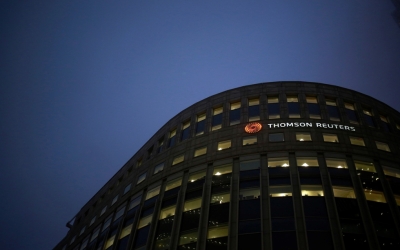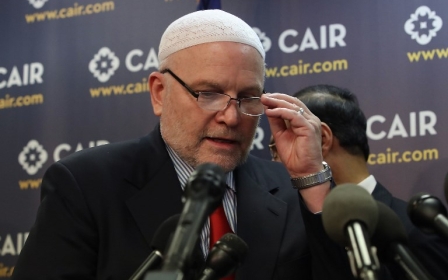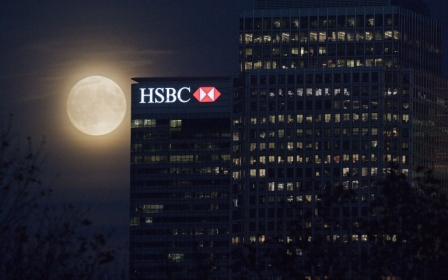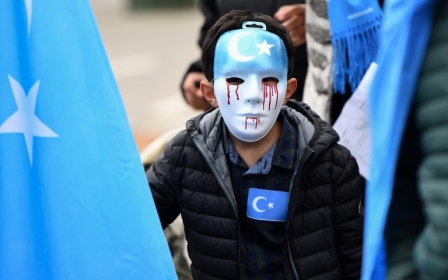Palestinian activist receives damages after being placed on World-Check blacklist
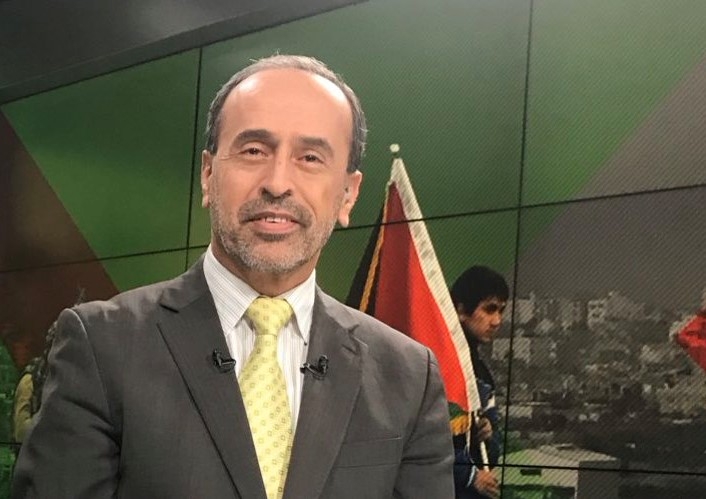
A Palestinian human rights campaigner has had his name removed from the World-Check financial database blacklist and received damages, after it had falsely associated him with terrorism.
Zaher Birawi, the chairman of London-based Palestine advocacy group Europal Forum, announced in a statement on Tuesday that he had received damages in a settlement which forced the influential database to remove his name from its terrorism categorisation.
He said he was included in the list “wrongly and without justification or evidence”, and that he was compensated for the “damages caused as a result of this unspeakable action”.
World-Check is widely used by leading banks and businesses to assess customer risk and reduce their exposure to legislation intended to tackle financial crime.
'NatWest bank in the UK closed my account in early 2018. When I asked them for a reason they refused to tell me why. It was the same for many other activities too'
- Zaher Birawi
The database was owned by Thomson Reuters until October last year when it was sold to the investment giant Blackstone, which set up a new risk company, Refinitiv.
New MEE newsletter: Jerusalem Dispatch
Sign up to get the latest insights and analysis on Israel-Palestine, alongside Turkey Unpacked and other MEE newsletters
Birawi revealed to Middle East Eye that he suffered financial implications as a consequence of the classification.
“NatWest bank in the UK closed my account in early 2018. When I asked them for a reason they refused to tell me why. It was the same for many other activities too,” he said.
“I asked many of my friends and colleagues and they have suffered the same. So I decided to go ahead with this case and alhamdulillah [praise be to God] we managed to get this victory.”
The legal settlement included a letter, in which Refinitiv stated: “Mr Birawi’s inclusion in the terrorism category should not be understood to suggest any actual or suspected connection to or involvement in terrorism.” It also confirmed that he had not been convicted of terrorism in the UK or elsewhere.
A spokesperson from Refinitiv told MEE that it could not comment on specific individuals, but that World-Check sets out clearly on its website how anyone can get in touch if they believe information to be inaccurate.
“World-Check does not perform a law enforcement function and does not have the authority to designate any person or group as a terrorist. If there is reliable information in the public domain linking an individual or group to terrorism this is reflected in World-Check,” the spokesperson added.
“In the event this information is incorrect or updated, we will reflect this in World-Check.”
Birawi said that while his name was removed from the blacklist, it still remained in the database under the category of “individuals” of heightened risk. He said that the sources used by World-Check to categorise him on their list were “politically motivated” blogs and official Israeli publications.
“In 2013, the Israeli government classified me and some others who organised the Gaza Freedom Flotilla as terrorists. They considered this human rights activism to be terrorism,” the activist said.
“I believe that this is part of a deliberate strategy by the Israeli government to ask its supporters and employees to write negatively about those who are trying to delegitimise the occupation, in order for us to be put on such databases and lists.”
Birawi said that World-Check should not necessarily rely on information provided by Israel, or any other government, on terrorism accusations - citing the example of Egypt.
Scores of Egyptian human rights defenders and opposition activists have been imprisoned on “terrorism charges” since President Abdel Fattah el-Sisi came to power in 2013, something human rights groups have described as "silencing dissent".
Another World-Check loss
In June 2017, former owner Thomson Reuters was forced to pay damages and issue an apology after World-Check falsely linked Finsbury Park Mosque to terrorism. The mosque said that it had its banking facilities withdrawn by HSBC as a result of the listing.
A month later, the Palestinian Solidarity Campaign, the UK’s largest Palestinian rights group, successfully fought to have its organisation and chairman removed from the blacklist, which it said were as a result of “smears” and false claims.
Two years ago, Middle East Eye exclusively revealed that Majed al-Zeer, the director of the Palestinian Return Centre (PRC), won £10,000 in damages and had his name removed from World-Check’s terrorism categorisation.
MEE also revealed in 2019 that the World Uighur Council, an internationally recognised advocacy group raising awareness about the repression of the Uighur minority in western China, was also added to the list along with three of its senior organisers.
'I hope that they will ... be more careful about classifying honest people in such a category, because it is very dangerous and problematic'
- Zaher Birawi
Birawi hopes that the plethora of payouts and legal battles will lead to a change in approach by World-Check.
“I hope that they will take that into consideration and be more careful about classifying honest people in such a category, because it is very dangerous and problematic,” he said. “I hope these victories will make them think twice.”
He believes that any human rights defenders who face such tribulations in the future should remain resolute.
“There is a saying in Arabic: 'No just cause shall be lost when continuously and determinedly pursued.' I believe that every single individual and organisation must not stay silent or be afraid of taking on these big organisations,” he said.
“It is our right to challenge these things, and if you keep trying you will get a result.”
Middle East Eye delivers independent and unrivalled coverage and analysis of the Middle East, North Africa and beyond. To learn more about republishing this content and the associated fees, please fill out this form. More about MEE can be found here.


